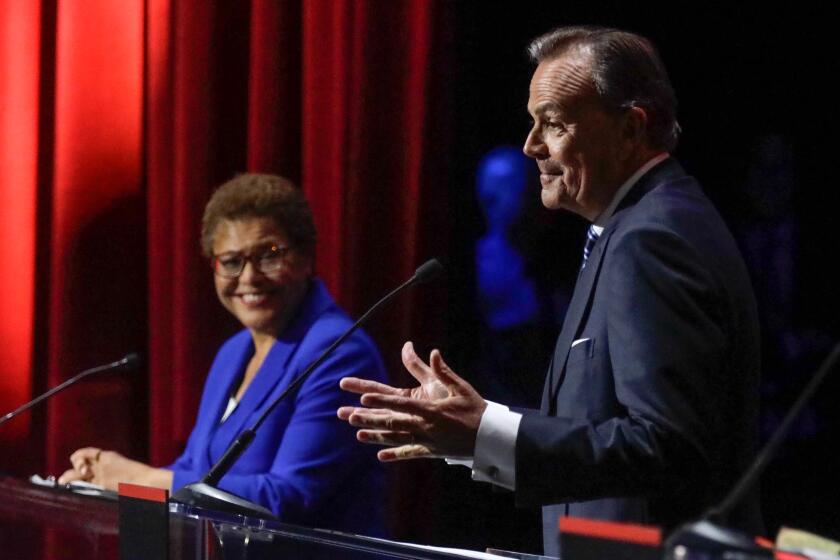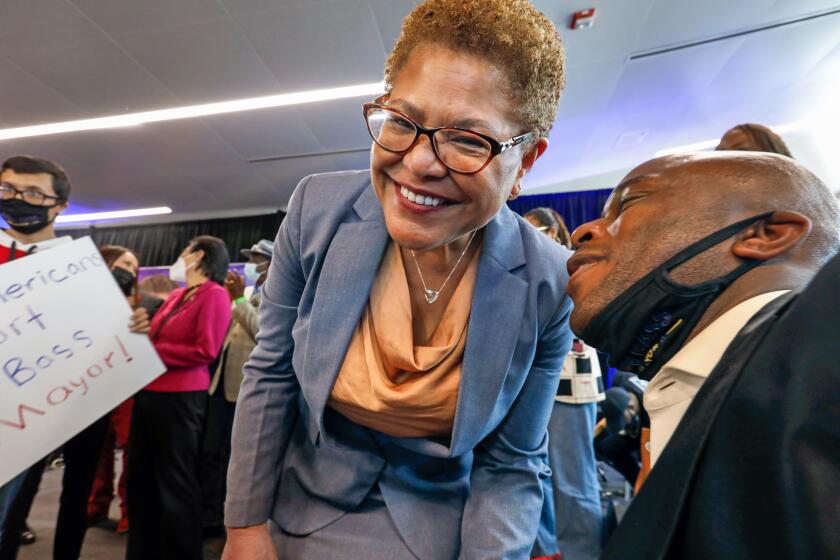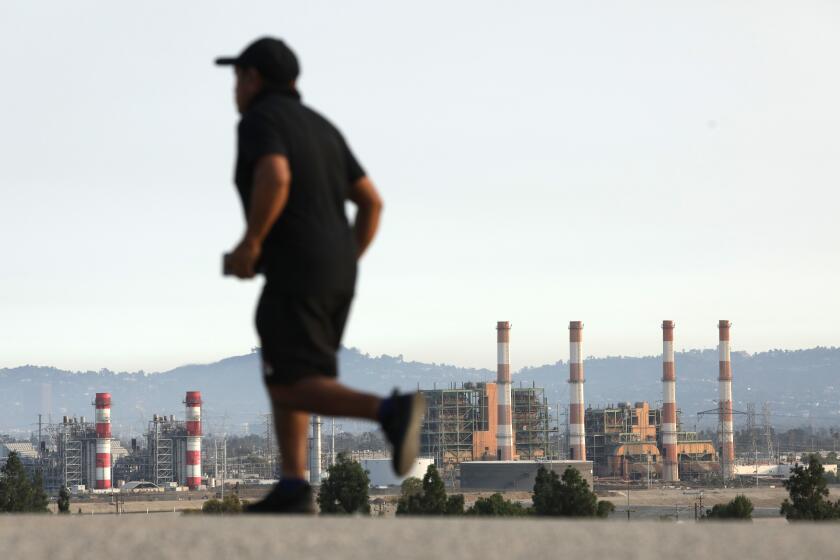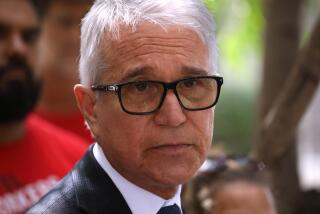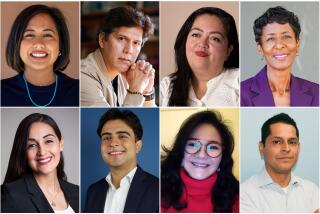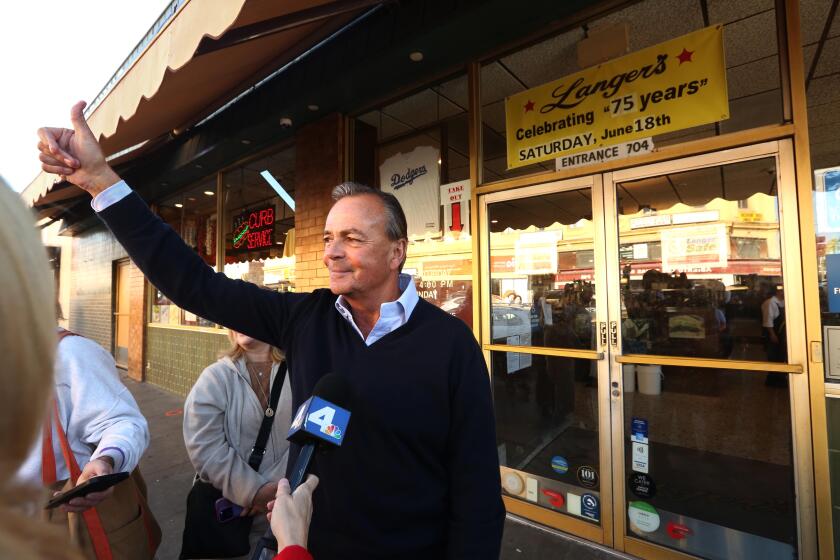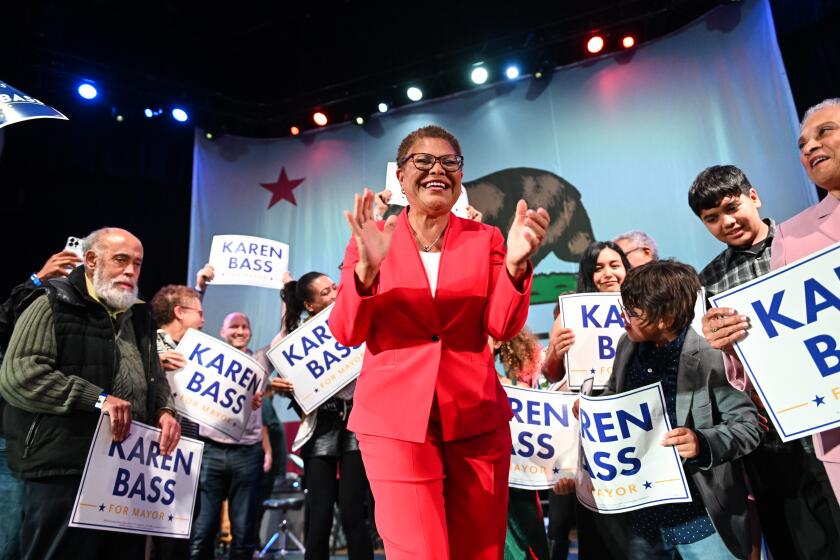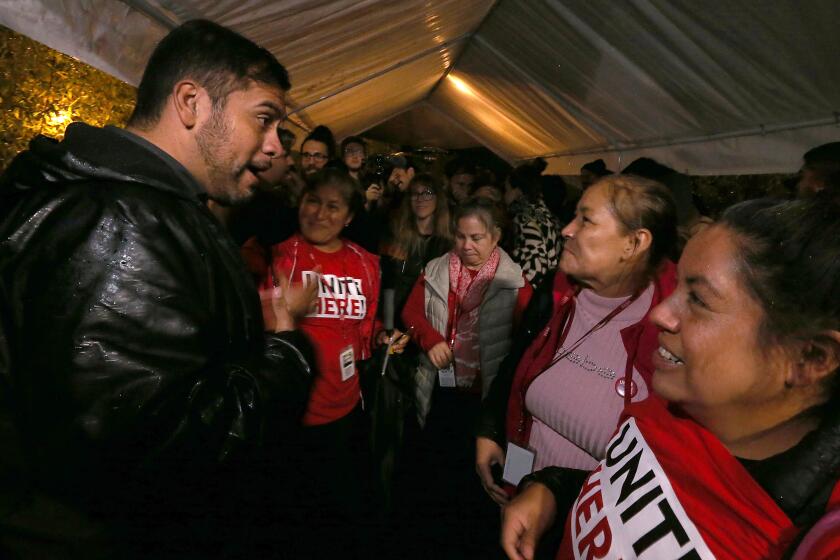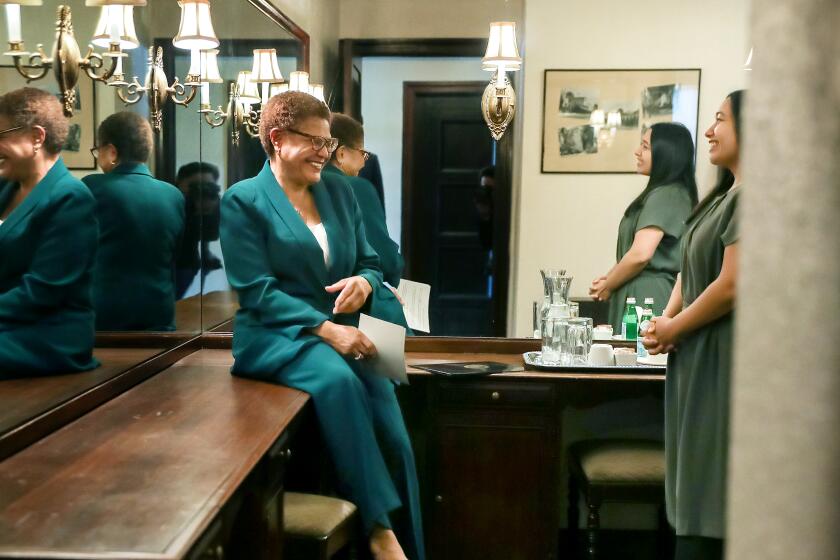L.A. mayoral candidates demand to be included in Cal State L.A. debate
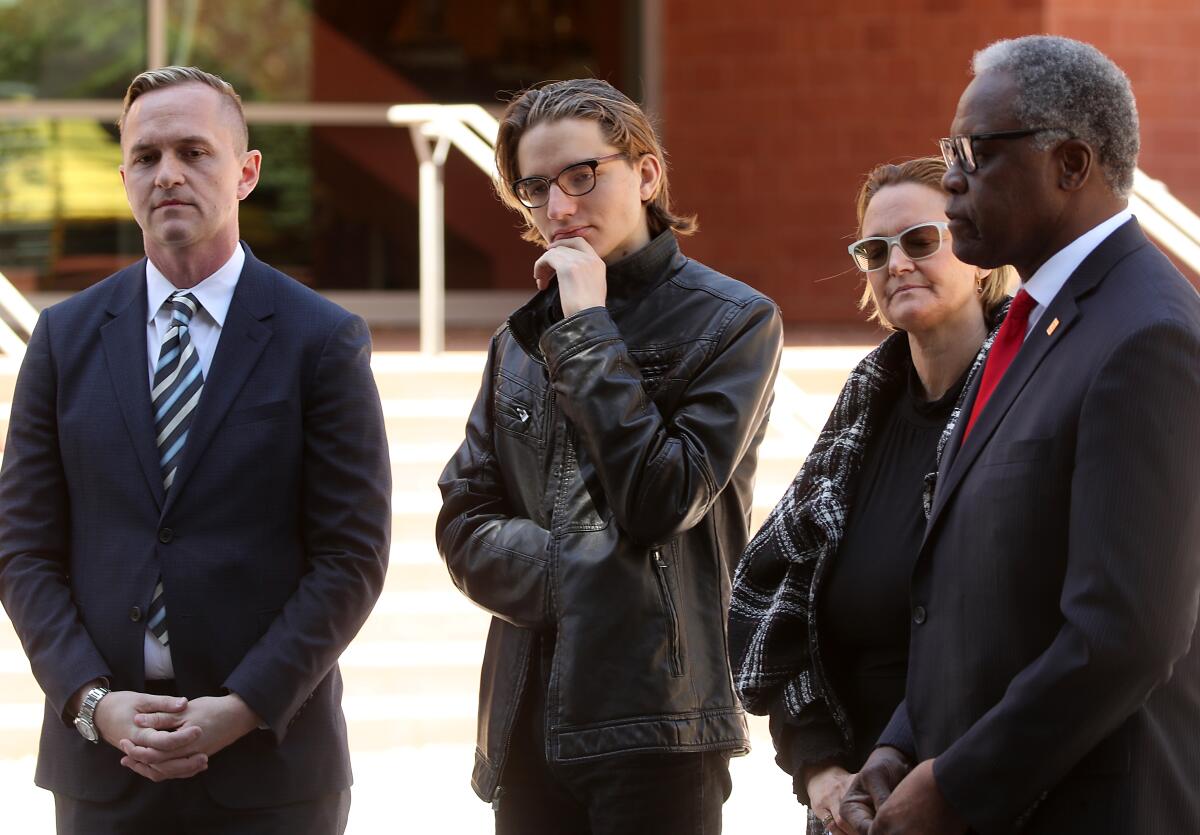
- Share via
It is a dilemma often faced by debate organizers — where to draw the line between “major” and “minor” candidates.
Is it polls, fundraising, political resume or some other “it” factor that determines who will square off onstage?
On Tuesday, four candidates for L.A. mayor demanded to be included in a May 1 debate organized by Cal State Los Angeles and the League of Women Voters of Greater Los Angeles.
A poll released Monday showed two clear front-runners — billionaire developer Rick Caruso and Rep. Karen Bass — with L.A. City Councilman Kevin de León at 6% and the other nine candidates at 2% or less.
So why were City Councilman Joe Buscaino and City Atty. Mike Feuer deserving of invitations and not others who had also fared dismally in the poll by the UC Berkeley Institute of Governmental Studies, co-sponsored by the Los Angeles Times?
The poll showed that 39% of likely voters remained undecided.
A starkly contrasting pair are on track for a November runoff that would feature sharp divides by ideology, geography and race.
“Voters don’t even know they’re entitled to options beyond the small group of insiders,” Gina Viola, a mayoral candidate who is calling for the city to redirect its police budget to social programs, said at a news conference Tuesday. “I’m at least as deserving of the opportunity to be heard.”
Raphael Sonenshein, a debate organizer who is executive director of the Pat Brown Institute for Public Affairs at Cal State L.A., acknowledged that the invitations are a “judgment call” but said that room on the stage was limited because of a 90-minute time limit.
Organizers consider four criteria, he said — publicly available polling data, media coverage, endorsements and fundraising.
“When you put them all together, you can get a fairly good perception of who are the main candidates who need to be on the stage,” he said.
He said organizers are evaluating the recent UC Berkeley poll to see whether any lineup changes are needed.
Caruso in a tweet on Wednesday voiced support for including more candidates on the debate stage.
“We should have a democratic debate that includes all of the candidates,” Caruso tweeted. “I challenge Karen, Kevin, Joe and Mike to call on Cal State to include the candidates.”
Feuer’s support for including everyone in the debate is contingent on Caruso releasing his tax returns, which the city attorney has been calling for, said Feuer’s campaign consultant, John Shallman.
Once Caruso releases the returns, “we will consider supporting the proposal,” Shallman said.
Bass’ spokesperson Anna Bahr said in an email that the congresswoman “will gladly debate as many candidates as organizers feel is practical.”
Buscaino’s campaign said he will “respect the decision of the debate organizers.”
Jonathan Underland, a spokesperson for De León, criticized Caruso’s tweet.
“The theatrics of this is that it’s not about democracy but minimizing the chance for him to make a mistake in front of tens of thousands of people,” he said. “In a 12-person debate, there’s a lot less time for error.”
The debate, which will be held at Cal State L.A. and air on KABC-TV Channel 7, is one of the last major events for the candidates to make their case before mail-in ballots go out for the June 7 primary.
Viola and others at Tuesday’s news conference at Cal State L.A. demanded that all 12 candidates who have qualified for the ballot should take part in the debate.
Limiting the field to five candidates amounts to “voter suppression” and restricts the range of ideas heard by the city’s voters, they said.
Rep. Karen Bass is facing criticism from the left over her positions on homelessness and crime, with prominent activists putting her on notice.
Bass, Caruso, De León, Buscaino and Feuer were all invited to past televised debates, including one held in mid-March at USC and co-sponsored by The Times, while the other candidates were mostly shut out.
Inviting more candidates to debate onstage could “force accountability,” said Craig Greiwe, a marketing executive who said he is running for mayor as a centrist, advocating for child-care vouchers and for addressing climate change with market incentives.
Taking part in a debate and getting his name out there is crucial to unlocking the city’s 6-to-1 matching funds for campaigns, said Alex Gruenenfelder, a 20-year-old Echo Park Neighborhood Council representative whose mayoral platform includes buying abandoned malls and converting them into affordable housing.
Candidates must either participate in a debate or conduct a town hall meeting to receive the city matching funds.
Mel Wilson, a San Fernando Valley real estate agent and former Metropolitan Transportation Authority board member, said he would use the debate stage to bring up a topic rarely raised by other candidates — climate change.
L.A. is already suffering from the impact of climate change, but candidates for mayor don’t seem to have many new ideas for what to do about it.
“We the people have a right to be heard,” said Wilson, who wants to make the city more business-friendly. “We the candidates have a right to speak.”
More to Read
Sign up for Essential California
The most important California stories and recommendations in your inbox every morning.
You may occasionally receive promotional content from the Los Angeles Times.

